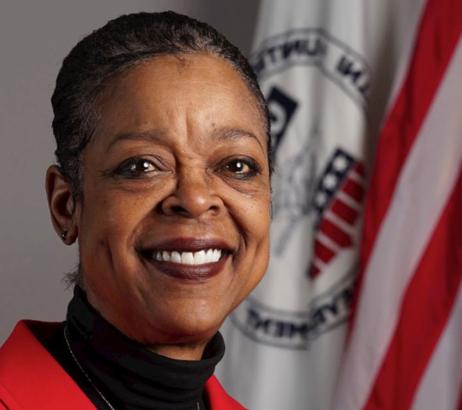A career designed around international finance and development has led Oren Whyche-Shaw ’71 to live in North and Sub-Saharan Africa and work in more than 60 countries. Most recently, she was nominated by President Biden for U.S. director of the African Bank. In December 2021, Whyche-Shaw appeared in front of the Senate Foreign Relations Committee and received a positive vote. The full Senate will need to vote for confirmation before the White House can issue a declaration of appointment.
“I was honored that colleagues from the U.S. Treasury whom I worked with 12 years ago put my name forward to the White House for this position. It was an honor that they thought that highly of me,” said Whyche-Shaw. “It seems like an appropriate closing of the circle for my service to the U.S. government. It’s sort of nice, ending the circle professionally and bringing the experience and expertise that I’ve acquired over the last many years to the bank. I hope I will make an impact.”
The goal of the African Development Bank is to spur sustainable economic development and social progress in its regional member countries (RMCs), which contributes to poverty reduction. According to the group’s mission and strategy, the bank achieves this objective by:
- Mobilizing and allocating resources for investment in RMCs.
- Providing policy advice and technical assistance to support development efforts.
“The African Development Bank is one of five, I believe, regional development banks, along with the World Bank, which is the global development bank. The African Development Bank is focused on the entire continent both North and Sub-Saharan Africa,” said Whyche-Shaw. “As a shareholder of the bank, the U.S. has a seat on its board, and so the nomination is for me to represent the U.S. on the Board of Directors of the African Development Bank.”
After graduating from Capital University in 1971 with a double major in Theoretical Mathematics and French, Whyche-Shaw’s career took her on an adventure in the financial, private, not-for-profit, and public sectors.
She earned her M.B.A. from Columbia Business School and started working on Wall Street in international finance. Whyche-Shaw was encouraged by a friend to apply to be a White House fellow, her first introduction to working with the government. Contract work soon followed, where she had opportunities to live and work in Tunisia and Abidjan, Ivory Coast.
Her expertise in Africa paved the way for her to become the director of African Nations at the U.S. Department of the Treasury and later several positions within the U.S. Agency for International Development (USAID), including the deputy assistant administrator for the Africa Bureau, a position she held until retiring in 2020.
“Shortly after taking on the West Africa portfolio, Ebola broke out. That was my primary responsibility as the D.A. in West Africa,” said Whyche-Shaw. “The responsibility of the work was incredible, not only in terms of what was going on in the field but also the oversight of the Hill having passed $1 billion in aid.”
After Ebola was controlled, responsibilities shifted, and Whyche-Shaw was asked to focus on southern Africa. A quieter region but one that had its own challenges “in terms of agriculture, water scarcity, women’s rights, and HIV/AIDS.”
“It was a challenging time with outbreaks of the plague, both the bubonic as well as the pneumonic, in Madagascar, locusts in a number of the countries, and also the rise of terrorism,” said Whyche-Shaw.
The COVID-19 pandemic was especially challenging as southern Africa became the “focal point within the continent.”
Whyche-Shaw can celebrate a long and successful career because of her desire to always build upon her experiences and openness to new things.
“You should learn never say never and never say always,” said Whyche-Shaw. “I do have a curious mind. I look at new opportunities when they present themselves, not that I always jump from one thing to another, but I always think, why not give it a try.”
